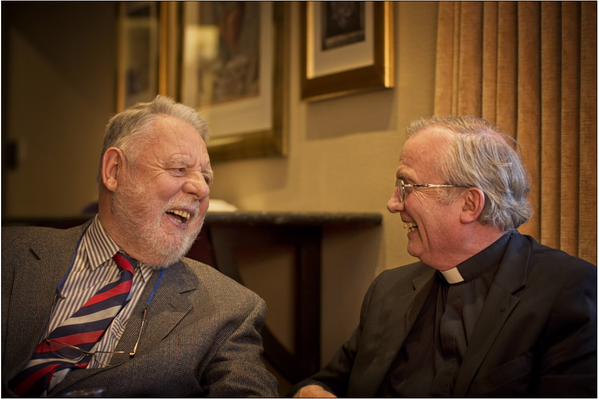Ladies and gentlemen, it is an honour for me – as Chair of the Irish Churches Peace Project – to be able to welcome you here to this important gathering. The formal project may have been in existence for under three years – but it genesis goes back much further. It was about 2008 that a group of faith-filled people recognised that the Churches in NI could – and ought to – be making a significant, consistent and distinctive contribution to peace building and reconciliation across NI. Despite smaller numbers attending Church regularly, our faith communities still have access to huge amounts of social capital and premises, as well as to local leadership. Furthermore, there was a recognition that, in many ways, religion and churches had also played a less than helpful role in creating and perpetuating our divisions.
Thus ICPP was never an attempt to win back credibility for ourselves or to re-engage with communities where we had lost sway. It was born out of a spirit of humility and from a desire to serve the Common Good. And it contained an element of repentance – for we cannot ask of others what we are not prepared to do ourselves.
There had already been peace-building processes within some individual churches. But from the beginning of the ICPP idea, it was clear that this project was going to require a public and shared engagement by the leadership of the four largest churches and of the Irish Council of Churches. That support was readily offered and has remained constant with senior leadership figures on Steering Group from the five sponsoring bodies. For that consistent backing, I am most grateful.
Our aim is expressed clearly on our website – Promoting community reconciliation through the churches working together. We can’t do everything – but we want to do everything that we can. Thus, we have emphasised support for local parishes and congregations to meet and to build on what has already existed. This week’s award of the Freedom of the City of Derry-Londonderry to Bishops Edward Daly and James Mehaffey is a sign that, in some places, good inter-church relations in public and private have already been long established and effective in healing old wounds. In other places, we had to start with bringing clergy together. Often their previous lack of co-operation was based more on a lack of time or support than on antagonism or enmity. Pastoring your own flock can be strenuous enough. But even though we chose often challenging areas in which to do our work, the response has been very positive and encouraging. There is a lot of good will out the in the churches. What was missing with the know-how and the co-ordination.
But we have tried to go beyond nice meetings. We have developed materials to help local communities undertake dialogue and tackle difficult issues such as hurt and forgiveness. Work has been done between the various theology training centres in Ireland that prepare candidates for ordained ministry so that peace-building can be incorporated into their theological and pastoral formation.
Furthermore, we have happily engaged with all people of good will who are, and have been involved in local efforts. The Churches could not contribute to a shared future by working in isolation.
We have only scratched the surface of the work that has to be done. But we hope and pray that we have done enough to convince our members that this work is both essential and possible. Indeed, we believe that it is the duty of all Christians and not just a niche interest for some to help our society move forward. The often uncomfortable truth can set us to be stop being prisoners of the past and freed to be architects of our future. If God has reconciled the world to himself in Christ, he has also committed to us the message of reconciliation. (Cf 2 Cor 5:18-19). We can do no other.
We have always entrusted our work and discussions to the grace of God. As we approach Holy Week we entrust the deliberations of this conference to the One who is made peace by the blood of his Cross (Col 1:20) May this time together be a source of blessing and encouragement as we reflect on our experience and learn from the experience of Christians elsewhere. We are approaching the end of this particular project. It will have been a success if we are really only at the start of a much longer process of being living witness of what the Gospel can do in people’s lives.
ENDS
- Bishop Donal McKeown is Bishop of Derry

